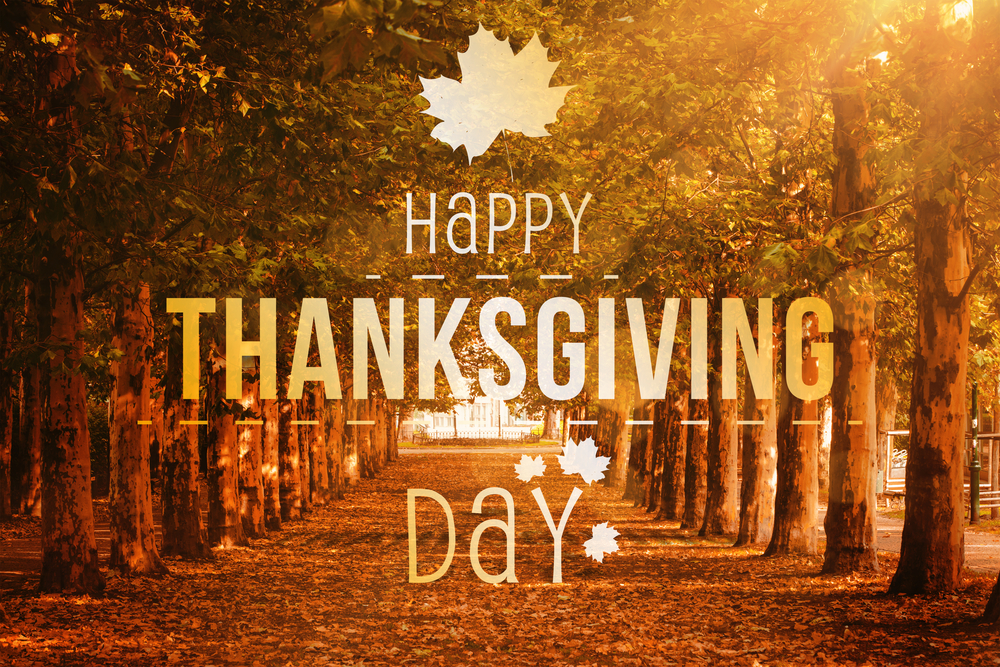Thanksgiving was declared a national holiday in 1941 when FDR signed a bill officially establishing the fourth Thursday of November as Thanksgiving day. Through the Depression and then World War II, Thanksgiving grew in importance.
In a country where roots meant almost nothing, where people were ready to pick up and move at the drop of a hat, where there were huge differences in what people thought and how they lived, Thanksgiving served to provide a unified, national myth…most popularly expressed in Norman Rockwell’s Thanksgiving illustration for The Saturday Evening Post in 1943.
The original Thanksgiving celebration took place in Massachusetts in 1621. It was hosted by a dour bunch of Puritans, who probably wouldn’t have been able to enjoy a good dinner if their lives depended on it. But they certainly had a lot to be thankful for.
As The Wall Street Journal reminds us annually, they nearly exterminated themselves in typical Yankee fashion — by wanting to boss each other around.
They had arrived in Massachusetts by accident and bad seamanship, intending to settle in the more hospitable climate of Virginia, which had been colonised more than 10 years before.
Once in Massachusetts, they proceeded to set up such a miserable community that surely most of them, had they lived, would have longed to return to England.
The Soviets could have learned from their example and spared themselves 70 years of misery. Only after the ‘witch-burners and infant-damners’ abandoned their communal form of organisation and allowed people to work for themselves did the colony have a prayer of survival.
But victors write the history books. And now, this precarious celebration by a feeble group of religious zealots has turned into the most American holiday.
[openx slug=inpost]
War between the states
In the middle of the War Between the States, both sides would proclaim days of ‘thanksgiving,’ following the progress of the war as we now follow the progress of the stock market. After each of the first and second battles of Bull Run — which sent the Yankees fleeing back to Washington — the Confederates proclaimed days of thanksgiving.
But it was Lincoln’s day that stuck. Declared after the battle of Gettysburg — the last great Napoleonic charge of military history — Thanksgiving was set for the last Thursday in the month of November, commemorating the Northern victory.
After the Battle of Appomattox in 1865, the South was helpless. Its natural leaders, the plantation aristocrats, were either dead, bankrupted, and/or discredited.
Many of them went to Northern cities, like New York or Baltimore, where, H L Mencken tells us, they ‘arrived with no baggage, save good manners and empty bellies.’ They enriched the North.
But back home, they were sorely missed. ‘First the carpetbaggers,’ says Mencken, ‘ravaged the land…and then it fell into the hands of the native white trash…’
Scars of war can take a long time to heal. But 153 years later, the South is the most economically and culturally robust part of the nation.
‘No man is himself,’ said William Faulkner, Oxford, Mississippi’s most celebrated alcoholic. ‘He is the sum of his past.’ Unlike so many other American writers of the 20th century, Faulkner stayed home.
The foreword to the Encyclopedia of Southern Culture has a passage from Faulkner saying, ‘Tell about the South. What’s it like there. What do they do there. Why do they live there. Why do they live at all.’
Even in Faulkner’s Mississippi, Thanksgiving is now part of everyone. And so, all over the world, Americans, gathering in small groups like pilgrims on distant shores, celebrate the holiday.
Americans in France
This can require a little ingenuity. Americans living in France, as we do for part of the year, have to search for the ingredients. Pumpkins are hard to pronounce — citrouilles — and harder to find. Cranberry sauce is unknown.
But on one Thanksgiving years ago, our mother discovered a store in Paris specialising in American groceries, named The Real McCoy. She hastened thither and brought back canned pumpkin, cranberry sauce, and peanut butter.
Thanks to this outpost of American culinary supplies, we were able to have a very typical Thanksgiving dinner when we slid our chairs up to the table.
But no one had refashioned American Thanksgiving recipes for the metric measuring cups in France.
Our wife, Elizabeth — descendant of the Puritan fathers…former resident of New York…a Yankee, in other words — and our mother — issuing from southern Maryland tobacco farmers and the French bourgeoisie — did their best.
And we were thankful.
Regards,
Bill Bonner
